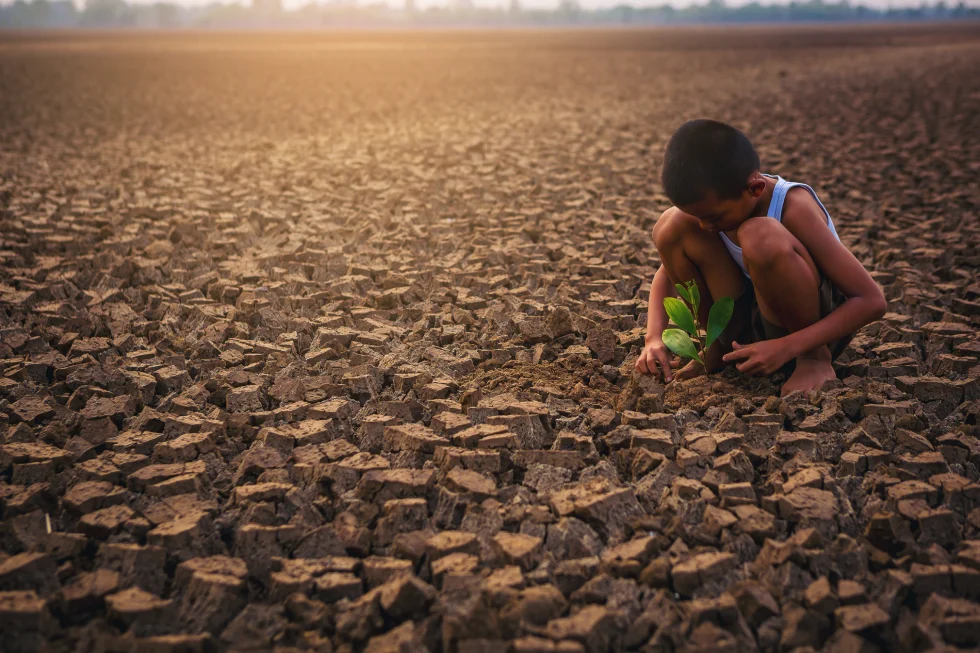In July, the Earth experienced the hottest days in recorded history, with the record set on July 22 at 17.16°C (62.89°F).
On average, the Earth is now 1.35°C (2.43°F) hotter than pre-industrial times.
What does that mean?
It can be challenging to understand opaque climate numbers. “400 parts per million of CO2,” preventing “two degrees of warming,” or “one foot of sea level rise” mean little to most people, making climate change easy to ignore or deny. For most of my life, growing up in the suburbs of Houston, Texas, I was privileged not to experience the impacts of fossil fuel use. But eventually, the impacts hit home.
My uncle used to work at the Bokaro Steel Plant in Bihar, India, first on the plant’s floor and eventually as a manager. Steel production requires a lot of coal, and with coal comes dust and particulates that workers inhale.
A few years ago, my uncle started experiencing lung problems and was diagnosed with pneumoconiosis (also known as black lung). After several months on oxygen, he opted for a lung transplant, but the operation failed, and he passed away a few weeks later.
Unfortunately, my uncle’s death was not an isolated incident. In 2023, over 5 million people died globally due to air pollution from fossil fuel use. Within the US, certain regions and demographics are more affected than others. Driving just 30 minutes outside of downtown Houston to Deer Park, or neighborhoods near the Houston Ship Channel, one encounters rows and rows of oil refineries and families where nearly everyone has cancer or respiratory issues.
These families are often people of color. They are exposed to 30% more particulate matter than the general population. Beyond the direct impacts of air pollution, increased heat waves can result in more excess deaths than COVID-19. It is undeniable that pollution and extreme heat have real human health impacts.
Most people say environmentalism is about saving the environment. After my uncle passed, I realized environmentalism is about saving human lives. We need to amplify the voices of people impacted by fossil fuel use so their stories can rise above the monotony of statistics. These powerful stories can create change in three ways: regulation, economic incentives and technology.
Solutions for climate change
The companies responsible for polluting should be held accountable, but they have little incentive to stop emitting because they must create value for shareholders. The Environmental Protection Agency creates environmental regulations such as rules and standards for air pollution from power plants. These are at risk of being repealed by Congress.
We need to create bipartisan support for federal legislation such as HB598 and HB5496 to ensure sustained regulation. We can accomplish this through heightened public pressure on policymakers. Advocacy groups should encourage and sponsor affected populations to testify in front of lawmakers, and recordings of these testimonials should be widely publicized. These stories have the power to convince voters to take up the mission themselves.
Historically, it was difficult to implement regulation. As a result, the most common and effective policies for climate solutions are financial incentives such as tax credits for producing clean electricity.
Advocacy organizations and think tanks should create and promote fellowships similar to the Congressional Hispanic Caucus Institute Public Policy Fellows but specifically for environmentally affected populations. This will enable them to contribute to policymaking.
Venture capital firms such as Breakthrough Energy Ventures should also create positions for affected people to directly invest in impactful companies. There is no better way to prevent pollution than developing technologies that provide the same service with no emissions.
There should be increased access to education across all levels in affected populations. Organizations such as STEM Global Action and I AM STEM are influential in cities like New Orleans. They should expand outreach efforts to environmental exposure areas to help children explore STEM careers. For higher education, universities should conduct targeted recruiting of talented students from community colleges in affected areas to help get them involved in research.
Losing my uncle inspired me to apply my engineering education to pursue technological solutions to climate change. People impacted by environmental exposure truly understand the harms of the fossil fuel industry. They may not be able to create change by themselves. But by giving them a platform, amplifying their voices and increasing their agency, we can ensure people impacted by climate change, like my uncle, get the change they deserve.
[Joey T. McFadden edited this piece]
The views expressed in this article are the author’s own and do not necessarily reflect Fair Observer’s editorial policy.
Support Fair Observer
We rely on your support for our independence, diversity and quality.
For more than 10 years, Fair Observer has been free, fair and independent. No billionaire owns us, no advertisers control us. We are a reader-supported nonprofit. Unlike many other publications, we keep our content free for readers regardless of where they live or whether they can afford to pay. We have no paywalls and no ads.
In the post-truth era of fake news, echo chambers and filter bubbles, we publish a plurality of perspectives from around the world. Anyone can publish with us, but everyone goes through a rigorous editorial process. So, you get fact-checked, well-reasoned content instead of noise.
We publish 2,500+ voices from 90+ countries. We also conduct education and training programs
on subjects ranging from digital media and journalism to writing and critical thinking. This
doesn’t come cheap. Servers, editors, trainers and web developers cost
money.
Please consider supporting us on a regular basis as a recurring donor or a
sustaining member.
Will you support FO’s journalism?
We rely on your support for our independence, diversity and quality.










Comment